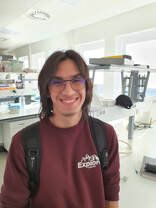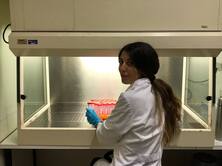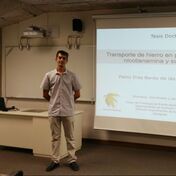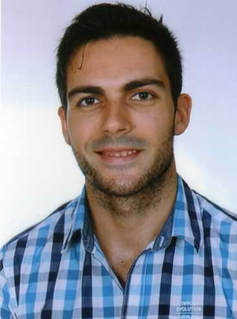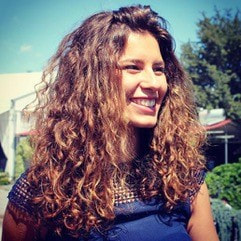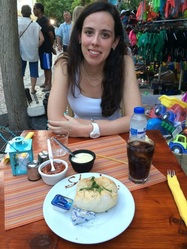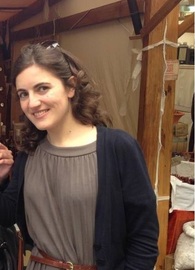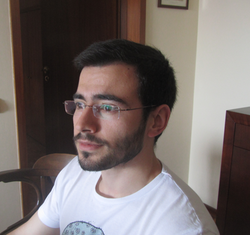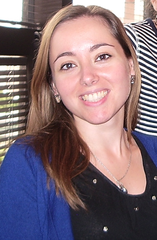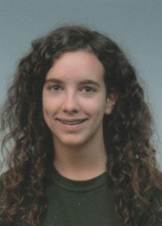Marta Vasconcelos (Coordinator)

I have been devoted to the field of Life Sciences, with an emphasis on plant nutrition, quality and health, for the last 20 years. I worked at the USDA-ARS Children´s Nutrition Research Center at Baylor College of Medicine from 2003-2008, looking at how to improve the nutritional content of plant foods and on the effect of plant nutrients on human health. I am currently Assistant Professor at UCP and Deputy Director of the Center for Biotechnology and Fine Chemistry (CBQF). I am part of the International Plant Nutrition Council, and I am the Specialty Chief Editor for Frontiers on Plant Nutrition. I have a long track record in coordination and participation in projects dealing with value chains, nutrition, healthy diets and sustainability. I am the Coordinator of the H2020 project RADIANT, Realising Dynamic Value Chains for Underutilised Crops (SFS-01SFS-01-2020c: From Agrobiodiversity to Dynamic Value Chains, starting in September 2021); the Deputy Coordinator of the H2020 project TRUE, TRansition paths to sUstainable legume-based systems in Europe; participant and Quality Manager of STARGATE, Sensors and daTA tRaininG towards high-performance Agrifood sysTEms, H2020-SFS-2019-2; H2020-WIDESPREAD-2020-5 2021-24), member of the Executive Committee; coordinator of the Citizen Science Task in INCREASE: Intelligent Collections of Food Legumes Genetic Resources for European Agrofood Systems (H2020-SFS-2019-2 RIA 2020-25); a participant in SYSTEMIC, an integrated approach to the challenge of Sustainable Food Systems, ERA-HDHL, JPI-OCEANS and FACCE-JPI; 2020-25); and member of the International Advisory Board of H2020 project DIVERSify: Designing InnoVative plant teams for Ecosystem Resilience. She is currently member of the External Advisory Board of the project Leg4Life,a joint project carried out by the University of Helsinki, Finnish Institute for Health and Welfare (THL) and Natural Resources Institute Finland (Luke) which will run until 2025.
Raul Sperotto (Visiting Professor)

I graduated in Biology (2003) and finished a Master’s (2006) and a PhD (2010) in Cellular and Molecular Biology from Federal University of Rio Grande do Sul (Brazil), working on rice nutrition and Fe/Zn homeostasis. Since 2011, I am Assistant Professor at University of Taquari Valley - Univates (Brazil), acting as Professor/Researcher of the Graduate Programs in Biotechnology (Univates), and Plant Physiology (Federal University of Pelotas, Brazil). I am the group leador of Plant Stress Lab, where the researches are focused in plant responses to environmental stresses, plant nutrition/biofortification, plant-bacteria interaction and biofertilization strategies. I have joined the PlanTech Lab as a visiting professor/researcher for a five months period, working with the European Project INCREASE: Intelligent Collections of Food Legumes Genetic Resources for European Agrofood Systems (H2020-SFS-2019-2 RIA 2020-25) and also studying the impact of carbon nanoparticles-based biofertilizers in the physiological and molecular plant responses.
Carla Santos (Doctorate Junior Researcher)
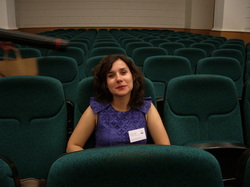
I graduated from Escola Superior de Biotecnologia-UCP in 2008, in Biosciences/Microbiology and finished a Master's Degree in Microbiology at the same institution, studying the differentially expressed genes in Pinus pinaster, after infection with Bursaphelenchus xylophilus.
Since then, I've been studying plant stress related problems from a molecular point of view, which is my main research interest. I've been utilizing quantitative PCR, Suppression Subtractive Hybridization, cloning and sequencing techniques in order to find genes of interest to our studies. Durng my PhD I applied the molecular techniques with which I'm familiar to the understanding of iron deficiency chlorosis (IDC) mechanisms in plants, that is one of the causes of the problem of micronutrient malnutrition around de world. Currently I'm a postdoctoral fellow working for the European Project TRUE (Transition Pathways for Sustainable Legume Systems in Europe), characterizing legume grains for novel foods and feeds. I am also the PI of the Project LeguCon (https://gulbenkian.pt/project/legucon/), that has established a consortium of stakeholders, including participatory farmers, for the promotion of legumes in the North of Portugal.
Since then, I've been studying plant stress related problems from a molecular point of view, which is my main research interest. I've been utilizing quantitative PCR, Suppression Subtractive Hybridization, cloning and sequencing techniques in order to find genes of interest to our studies. Durng my PhD I applied the molecular techniques with which I'm familiar to the understanding of iron deficiency chlorosis (IDC) mechanisms in plants, that is one of the causes of the problem of micronutrient malnutrition around de world. Currently I'm a postdoctoral fellow working for the European Project TRUE (Transition Pathways for Sustainable Legume Systems in Europe), characterizing legume grains for novel foods and feeds. I am also the PI of the Project LeguCon (https://gulbenkian.pt/project/legucon/), that has established a consortium of stakeholders, including participatory farmers, for the promotion of legumes in the North of Portugal.
Marta Nunes (Reseacher scientist)
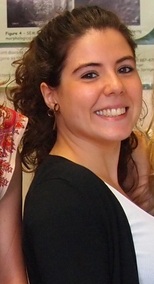
My research interests include the study of biotic and abiotic stress in plants, namely plant pathology, specially concerning the study of the pine wilt disease and kiwi bacterial canker through physiological, morphological, genomic and metabolomics approaches, and plant nutrition, focusing on the effect of metal contamination and different silvicultural practices on mineral nutrition. I graduated in Biology in 2010 and achieved the Master's degree in Environmental Toxicology and Contamination in 2012 from University of Porto. I joined the Plantech group in 2009 to study the susceptibility of some Portuguese plant species to the pine wilt nematode, Bursaphelenchus xylophilus, and to explore plants physiological resistance mechanisms against this pathogen. Later on, I focused my research in the development of environmental-friendly control methodologies against B. xylophilus, namely chitosan and methyl jasmonate, and in the analysis of plant organic volatile compounds that could be involved in Pinus spp. tolerance/susceptibility to the pathogen. I defended my PhD in Agronomical Sciences in 2021, which focused in the kiwi bacterial canker, caused by Pseudomonas syringae pv. actinidiae, specifically exploring the physiological and molecular mechanisms behind Actinidia spp. increased tolerance/susceptibility to this pathogen and in the development of phytosanitary and fertilization regimes that could increase kiwi plants resistance to the pathogen and increase plant productivity. Currently I work in scope of the TRUE project looking at the role of legumes and other underutilized crops for global agrifood sustainability.
Elena Rosa-Martínez (Laboratory Technician, PhD)
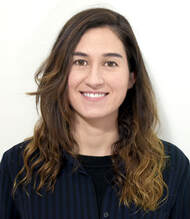
I graduated in Biotechnology from Universitat Politècnica de València (UPV) in 2014. I finished a Master's Degree in Plant Breeding in 2017, and received my PhD degree in march 2022. I developed my PhD thesis within the Solanaceae research group headed by Prof. Jaime Prohens at the COMAV Institute (UPV), and was focused on breeding for nutritional and apparent quality in Solanaceae vegetable crops.
During my years in research, I’ve been characterizing tomato, eggplant and pepper germplasm regarding morphoagronomic traits, nutritional and apparent quality of fruits, under different cultivation conditions involving open field, greenhouse and low nitrogen inputs. I have participated in several European projects aiming at characterising genetic resources on a large scale for the development of new varieties to cope with climate change conditions and the use of more environmentally sustainable growing conditions (BRESOV, G2PSOL, SOLNUE).
I recently joined the Plantech group as a Laboratory Technician under the VIIAFOOD – Germen project (Platform for valorisation, industrialisation and commercial innovation for the agri-food sector) aimed at developing innovative products to promote sustainable agri-food chains and add value to grain legumes
During my years in research, I’ve been characterizing tomato, eggplant and pepper germplasm regarding morphoagronomic traits, nutritional and apparent quality of fruits, under different cultivation conditions involving open field, greenhouse and low nitrogen inputs. I have participated in several European projects aiming at characterising genetic resources on a large scale for the development of new varieties to cope with climate change conditions and the use of more environmentally sustainable growing conditions (BRESOV, G2PSOL, SOLNUE).
I recently joined the Plantech group as a Laboratory Technician under the VIIAFOOD – Germen project (Platform for valorisation, industrialisation and commercial innovation for the agri-food sector) aimed at developing innovative products to promote sustainable agri-food chains and add value to grain legumes
Janaína Medeiros (Research assistant, MsC)

I am conducting my MsC.. on the valorization of chickpea crop and evaluating its potential for resilience to climate change. Most relevant results/highlights: Determined the nutritional profile of a traditional and commercial chickpea variety; Installed a microcosm test with chickpeas for further evaluation of resilience to water stress.
Teresa Lemos (Research assistant, MsC)

I graduated from Escola Superior de Biotecnologia (UCP) in 2019, in Nutrition Science and achieved the Master’s Degree in Human Nutrition and Metabolism in 2023, from NOVA Medical School, in Lisbon. As part of my master thesis project, I joined the research team in the Department of Nutrition, Exercise and Sports – University of Copenhagen (UOC), where I gained a lot of insight and understanding into metabolomics and human trials. I joined the Plantech group as part of a research grant for the project “HAC4CG – Heritage, Art, Creation for Climate Change. Living the city: catalysing spaces for learning, creation, and action towards climate change”. Within this project I aim to analyze the effect of tourism on heritage varieties and local traditional businesses and the new food habits or demands of the population.
José Soares (PhD student)

José C. Soares is a Biologist and received his Bachelors of Science degree in Biology from University of Porto in 2005. Thereafter, he received his Masters degree in Biology from the same University in 2009. His thesis focused on studying the biodiversity of Staphylococcus species isolated from a manufacturing dairy plant. After graduation, he joined to the Portuguese Catholic University – College of Biotechnology as a research assistant working with biotechnology applied to textile processing, antimicrobial functional textiles and with topographical and temporal diversity of the human staphylococcal skin profile associated to atopic dermatitis. In addition, he also has worked with probiotics and staphylococcal strains isolated from food model systems.
In the PlanTech lab, his current work is aimed towards studying the impact of elevated carbon dioxide under iron-limited conditions in the morphological, physiological, and molecular plant responses.
In the PlanTech lab, his current work is aimed towards studying the impact of elevated carbon dioxide under iron-limited conditions in the morphological, physiological, and molecular plant responses.
Joana Machado (PhD student, co-supervision)
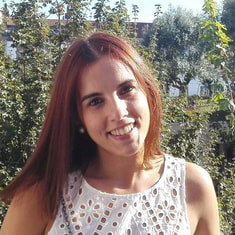
I graduated in Biology in 2012 and concluded a master’s degree in Environmental Toxicology and Contamination in 2014, both in Porto University Plant Sciences (particularly the Agronomical crops) have awakened in me a great interest especially after the conclusion of my master’s thesis where I have studied the effects of using contaminated water with cyanotoxins in the irrigation of Daucus carota (carrot), studying the impacts of these practices in plant's physiology (growth and photosynthesis), mineral and vitamin content as well as in bioaccumulation in edible tissues. Thereafter, I had the opportunity to work as a Research Fellow in some Portuguese R&D Institutions (ITQB, CESAM, CBQF/ESB/UCP) where I started to develop a solid background in plant physiology and biochemistry applied to agronomical crops.
In 2017, I started my PhD in Agronomical Sciences which aims to screen, exploit and understand the natural phenotypic and genotypic variation in Water and Nitrogen Use Efficiency (WUE/NUE) in tomato plants. My PhD work will be developed in collaboration with Porto University, Wageningen University and CBQF/ESB (Portuguese Catholic University).
In 2017, I started my PhD in Agronomical Sciences which aims to screen, exploit and understand the natural phenotypic and genotypic variation in Water and Nitrogen Use Efficiency (WUE/NUE) in tomato plants. My PhD work will be developed in collaboration with Porto University, Wageningen University and CBQF/ESB (Portuguese Catholic University).
Helena Ferreira (PhD student, co-supervision)

I graduated in Nutrition Sciences (BSc) at Faculty of Nutrition and Food Sciences of the University of Porto, in 2012. Since then, I have worked as a Nutritionist in different areas, namely, Clinical Nutrition, Public Health and Community Nutrition, as well as within the Food Industry sector regarding Quality and Food Safety Systems management. In 2015, I undertook a graduate Course in Nutrition and Aging at Faculty of Biotechnology of the Portuguese Catholic University and in 2016 finished a Master's Degree in Biotechnology and Innovation (Branch Human Nutrition) at the same institution, studying the relationship between food waste and nutritional status among Portuguese institutionalized elderly people. Currently, I am a FCT grant PhD student at Faculty of Biotechnology of the Portuguese Catholic University, studying human health benefits of adopting semi-vegetarian dietary patterns, considering grain legumes as significant protein food sources and their potential to be used as meat alternatives. My PhD project will be developed in frame of the TRUE project (TRansition paths to sUstainable legume-based systems in Europe), under the supervision of Professor Elisabete Pinto, Professor Marta Vasconcelos, both from Faculty of Biotechnology, as well as Professor Ana Gil, from the Department of Chemistry of the University of Aveiro (Portugal).
Maryam Bagheri (PhD student)

I received my bachelor (2006) and master degree (2009) in Agricultural Engineering – Horticultural Sciences – both from Bu-Ali Sina University, Iran. I became interested in biotechnology (genetics and molecular biology) especially after the successful conclusion of my master’s thesis in which I studied the identification of self-incompatibility alleles in Iranian pear cultivars using allele specific PCR amplification. Thereafter, I worked as a research fellow at the Plant Physiology Lab (Bu-Ali Sina University) where I tackled a new challenge: to understand the molecular mechanisms and physiological responses of persimmon, peach and orange after application of various safe post-harvest treatments for human health. From 2016-2018, I was an investigator at the Centre of Molecular and Environmental Biology (CBMA), University of Minho, Portugal. I started my PhD at Escola Superior de Biotecnologia, UCP, under supervision of Prof. Marta Vasconcelos. The topic of my PhD research is: Exploring breeding options for nutrition and water use efficiency in pea. Based on a dual approach, I will explore the morphological, physiological, biochemical and genetic traits in response to water stress, both at the plant and at the soil level, in a germplasm collection of 320 pea accessions. This in-depth analysis will target molecular approaches, complemented with high-throughput technologies, such as GWAS analysis.
Evla Ferro (PhD student)

I have Master degree in human nutrition with expertise in nutritional analysis of population and child nutrition. In last years I have focused my studies on food security, sustainable food systems and food education. At the present I am a phD studant in scienci, food technology and nutrition.
Beatriz Silva (PhD student-co-supervision)

I finished my Bachelor degree in Microbiology at Faculty of Biotechnology of the Portuguese Catholic University. In September of 2017 I did a volunteer internship at the PlanTech at Universidade Católica Portuguesa in the scope of the TRUE project. I am now starting my PhD at DIL (Germany) with supervision of Dr. Sergiy Smetana and co-supervision by Marta Vasconcelos. The topic is the following: current food production is relying on limited approaches for food production relying on a few crops (only 3 crops provide 60% of the of the calories and nutrition in the human diet) and animals, but also processing techniques targeting safety of food. At the same time environmental and ethical issues of current food systems trigger the search for more sustainable solutions. The most recent consumer trends say that these look for minimally processed food for different reasons – health, sensory aspects and others. This work proposes eco-design of novel food products to promote the growth, and consequently utilization, of many underutilised crops that are currently being overlooked, one example are many tomato landraces (S. lycopersicum).
Jazmine Osorio (PhD student)

I graduated in Nutritional Sciences on 2015 from Universidad Rafael Landívar in Guatemala. After that I was selected to participate in the Erasmus Mundus Program where I am currently enrolled at Université de Montpellier, France pursuing a two-year master degree in "Sustainable Management of Food Quality". This master has given me the chance to study in many countries around Europe like Italy, Spain and Portugal and with it, to learn about food security and safety, production and quality of organic food, marketing in food quality and European sustainable practices.
My first encounter with Universidade Católica Portuguesa was in 2017 where I had the opportunity to participate as a volunteer researcher in the topic “Fresh-cut Pear Browning Inhibition” and engage in fresh-cut fruit analysis like the characterization of the sample (color, brix and pH), SSC (Soluble solid content), acidity, respiration rate and antioxidant activity measurements. For 2018, I requested to come back to Universidade Católica Portuguesa in order to strengthen my knowledge in the research field, where I am currently working in as a PhD student with the TRUE project (Transition Pathways for Sustainable Legume Systems in Europe) in the field of food development for sustainable and healthy food products.
My first encounter with Universidade Católica Portuguesa was in 2017 where I had the opportunity to participate as a volunteer researcher in the topic “Fresh-cut Pear Browning Inhibition” and engage in fresh-cut fruit analysis like the characterization of the sample (color, brix and pH), SSC (Soluble solid content), acidity, respiration rate and antioxidant activity measurements. For 2018, I requested to come back to Universidade Católica Portuguesa in order to strengthen my knowledge in the research field, where I am currently working in as a PhD student with the TRUE project (Transition Pathways for Sustainable Legume Systems in Europe) in the field of food development for sustainable and healthy food products.
Patrícia Gonçalves (PhD student, co-supervision)

I completed an undergraduate degree in Biology and an MsC in Plant Biotechnology and Functional Biology in 2019. In 2020 I started my PhD. The growing need to produce more food and to achieve maximum yields has been increasing the use of water and nitrogen (N) fertilizers. Already 80% of the available freshwater is applied in irrigated agriculture. Moreover, high Nfertilization has serious impacts on the environment and human health. This renders water and N fertilizer overusage as two of the most negatively impactful practices in modern agriculture. The new European Green Deal strives to make Europe the first climate-neutral continent. For this, we need to design sustainable strategies that will increase water (WUE) and nitrogen (NUE) use efficiency in economically important crops. The main aims of this project are: (1) to exploit the morpho-physiological, molecular, metabolic and proteomic variation between tomato cultivars in response to combined water and N stress to support marker-assisted breeding strategies; (2) to evaluate the potential of novel elicitors and graȅing towards more sustainable tomato production practices.
Miguel Santos (PhD student, co-supervision)

M. Santos has a BSc in Biology and a MSc in Agricultural Engineering (FCUP). After 3 years working as a research fellow in the EU-project AgriNuPes (www.agrinupes.eu), he is currently a PhD student in the Agricultural Sciences program from FCUP. He has been developing his PhD program at GreenUPorto on the topic “Act-ON Psa: The role of plant nutrition and sustainable management tools for Psa mitigation in kiwifruit” in collaboration with CBQF – Universidade Católica (at PlanTech) and with U. Vigo (financed by FCT; 2020.08874.BD). His research interests include plant physiology, nutrition and pathology.
Maling Wang (PhD student, co-supervision)

Maling Wang holds a BSc in Biology and an MSc in Agricultural Engineering from the University of Porto. After working as a Research Fellow, she is currently developing her PhD thesis in the Agricultural Sciences program from FCUP that will be accomplished at GreenUPorto in collaboration with CBQF (at Plantech) and U.Minho. The project aims to explore sustainable strawberry production targeting at high fruit quality with low-level of chemical residues testing different biotechnological strategies and eco-friendly approaches. Her research interests focus on plant nutrition, plant physiology, crop growth and postharvest technology.
Carolina Cassoni (PhD student, co-supervision)
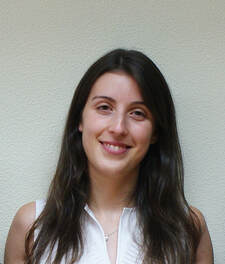
My academic education includes a bachelor’s degree in biology followed by a master’s degree in Ecology, Environment and Territory, both in Faculty of Sciences of University of Porto. During my academic course I had the opportunity to do an extracurricular internship in environmental education at CIIMAR and a curricular internship in CIBIO concerning conservation, genetics and phylogeography. Finally, I developed my master thesis in phytoremediation. In 2017 I integrated the CBQF team as a research fellow in the project “R4Textiles- Development of sustainable textiles based on the valorization of textile and agrofood waste”, followed by the project “EcoTex- Development of more sustainable solutions for textile staining” in 2018. In 2020 I started my PhD at CBQF developing a project entitled “Lignin extract as potential biopesticide for the control of nematode parasites – an integrative approach.
Cindy Dias (PhD student, co-supervision)

I am Master in Biological Engineering in 2017 from the University of Minho School of Engineering in the field of Chemical and Food Technology. My master gave me knowledge in multidisciplinary domains of Biological and Chemical Science, Agro and Food industries. From 2018-2019 I was a Research Fellow at CBQF under the project "ReStoragePear" project with the objective of developing strategies for prevention of scald and internal browning of ‘Rocha’ pear.
Currently, I am a PhD student at ESB-UCP under the Biotechnology doctoral program. My PhD project will try to respond to a clear Postharvest sector need by developing strategies for the recovery and control of the ripening capacity of 'Rocha' pear stored after treatment with 1-MCP. My publications reflects my research interests in Food chemistry, Postharvest Technology, natural preservation, bioactive compounds and Food by-product valorization.
Currently, I am a PhD student at ESB-UCP under the Biotechnology doctoral program. My PhD project will try to respond to a clear Postharvest sector need by developing strategies for the recovery and control of the ripening capacity of 'Rocha' pear stored after treatment with 1-MCP. My publications reflects my research interests in Food chemistry, Postharvest Technology, natural preservation, bioactive compounds and Food by-product valorization.
Rafael Duarte (PhD student)
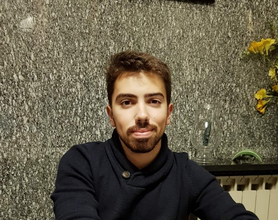
Recently completed a bachelor's degree in Biochemistry from University of Porto in 2018, where I developed research work in the area of food chemistry for my final project, namely "Study of the Modeling of Organoleptic Properties (Astringency) with Lignins".In the summer of 2018, also did an internship at FRUTECH - Center for Research, Development and Innovation, under the guidance of the Research and Technology team. This initiative was integrated into the Frulact company, and the main focus of the work was the development of ice-creams for target groups, based on particulars traits that were desired. Currently, I am completing a master's student in Applied Microbiology at Portuguese Catholic University – College of Biotechnology, where, in association with PlanTech research laboratory, I am studying the impact of climate change on legume nutrition via “omics”, microbiome and phenotypical approaches of beans crops exposed to future concentrations of carbon dioxide in a free-air CO2 enrichment (FACE) facility.
Rafaela Geraldo (PhD student)

I recently finished my master’s degree in Applied Microbiology at Portuguese Catholic University – College of Biotechnology (UCP-ESB). For my final project, I collaborated in the development and characterization of a bioluminescent system of Streptococcus agalactiae to study neonatal meningitis caused by this pathogen. In 2018, I finished my bachelor´s degree in Biochemistry at Faculty of Sciences of the University of Porto (FCUP) where I researched the effects of maternal vaccination with recombinant GAPDH of S. agalactiae on the development of the central nervous system of its offspring. Throughout my academic career, I completed extracurricular internships, namely at the company Necton SA - Microalgae Business Unit, where I collaborated in the research and production of microalgae, and where I was able to obtain a more diversified knowledge in the industry area, and at FCUP, where I developed fluorescent carbon nanomaterials that can respond to glucose and other molecules related to diabetes. Currently, I am applying for a PhD scholarship at ESB-UCP and Faculty of Medicine of the University of Porto (FMUP). The topic is to understand the role of cooked lentils, particularly via arginine and epigallocatechin, in the improvement of cardiovascular health and glycemic control in diabetes mellitus and erectile dysfunction.
Alumni and former members
Rosa Moreira (PhD student-co-supervision)

I'm graduated in Environmental Sciences and Technology from the University of Porto and master in Agronomic Engineering from the same institution. I am also a graduate student in Agronomy and also in GIS applied to agroforestry and environmental resources, areas that I have been passionate about since I was very young given my strong agricultural family history. From my most recent professional experience, I highlight two professional positions. As part of my master's dissertation, I had the opportunity to carry out an innovative field trial in a study area of about 1ha, where the production, adaptation and use of soybean cultivation in the agrarian region of Entre Douro e Minho was evaluated. On the other hand, more recently, I had the opportunity to be a Local Technician at the 2019 Agricultural Census. This position gave me the opportunity to develop knowledge in the scope of data collection and analysis of agricultural holdings in the agrarian region of Entre Douro e Minho. Aware of that, in 2018, I created the digital platform "A Cientista Agrícola" that I maintain until today. In this digital project, with a clear mission to communicate about agriculture and related subjects, I developed communication, writing and content creation and management skills on social networks. Currently, i'm Laboratory Technician in LeguCon project that has established a consortium of stakeholders, including participatory farmers, for the promotion of legumes production.
Manuel Oliveira (PhD student, co-supervision)
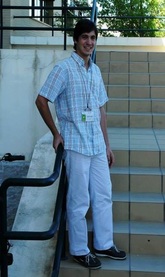
I graduated in Genetics and Biotechnology in Trás-os-Montes e Alto Douro University (UTAD), in 2010, and took a master’s degree in Laboratorial Clinical Biology, in 2013, in the same institution. I had a FCT research grant (2010) in Chemistry Centre – Vila Real (CQ-VR) entitled Comparative study of the antioxidant capacity and polyphenol content of Douro wines by chemical and electrochemical methods. In the master thesis, I studied the chemoprotective effects of polyphenols of Douro wines, studying the captation capacity of nitric oxide radical by Douro wines. This work was developed in Laboratory of Farmacognosy, Pharmacy Faculty of Oporto University (FFUP). Currently, in the Plantech group research, I will study flavescence dorée, a phytoplasma which infects grapevines and causes a decrease in wine production, inducing a great negative economic impact.
Adrián Villamor (Post doctoral fellow)
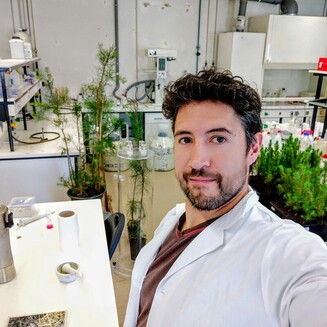
I graduated from Universidade de Santiago de Compostela (USC) in 2007, in Vegetal Biology and finished a Master's Degree in Production, Protection and Vegetal Improvement at the Universidad de Córdoba (2009), studying the Trisomy in the genus Asparagus in relation with a better production.
I received my PhD degree in 2016. My PhD was carried out in the Forest Research Center of Lourizán (CIFL), Pontevedra and linked to the department of plant production of the Polytechnic School, Campus de Lugo (USC). The title of my thesis was: Genetic Control of the Ability to Vegetative Propagation and Resistance to Phytophthora cinnamomi in Families of Controlled Pollination of Castanea.
Currently I'm a postdoctoral fellow working at the Escola Superior de Biotecnologia (ESB) and the Misión Biolóxica de Galicia (CSIC). I am researching the use of methyl jasmonate like control against Bursaphelenchus xylophilus analyzing the plant organic compounds that could be involved in Pinus spp. tolerance/susceptibility to the pathogen.
I received my PhD degree in 2016. My PhD was carried out in the Forest Research Center of Lourizán (CIFL), Pontevedra and linked to the department of plant production of the Polytechnic School, Campus de Lugo (USC). The title of my thesis was: Genetic Control of the Ability to Vegetative Propagation and Resistance to Phytophthora cinnamomi in Families of Controlled Pollination of Castanea.
Currently I'm a postdoctoral fellow working at the Escola Superior de Biotecnologia (ESB) and the Misión Biolóxica de Galicia (CSIC). I am researching the use of methyl jasmonate like control against Bursaphelenchus xylophilus analyzing the plant organic compounds that could be involved in Pinus spp. tolerance/susceptibility to the pathogen.
Arthur Marques (MSc student)
Elsa Rodrigues (research fellow)
Kimhung Say (MSc student)
Pablo Diez Benito (Post doctoral fellow)
Patrícia Gonçalves (MSc student)
|
I graduated in Sciences of Engineering – Agronomic Engineering profile – at Faculty of Sciences of University of Porto (FCUP), in 2016. My first curricular internship, titled “Evaluation of the effects of applying ericoid mycorrhizas on growing blueberry”, was in 2016, at Plantech group. In the same year I was distinguished with the best final average grade of 2015/2016, in the celebration of FCUP day.
|
Fábio Nunes (MSc student)
|
I was a researcher with the PlanTech group for 1 year where I studied the impact of the rise of CO2 on plant nutrition. My research was also based on the understanding of the mechanism responsible for iron chlorosis in plants and their behavior in the presence and absence of iron (Fe), thus obtaining my master's degree in biotechnology and innovation.
|
Sofia Ferreira (Research fellow)
Filipa Pereira (MSc student)
Marta Barros (MSc student)
Mariana Duarte (Master degree student)
David Araújo (Research fellow)
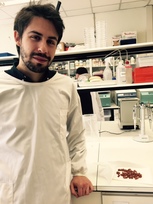
I did my master’s thesis about the use of new methodologies in the area of Multispectral imaging for the early identification of nutritional stress symptoms in plants, in collaboration with Plantech group, under the supervision of Prof. Susana Carvalho and Prof. Marta Vasconcelos, and worked on the effects of biofertilizers application in strawberry culture in soil and hydroponics.
Catarina Ribeiro (Master degree student)

I completed my undergraduate degree in Nutritional Sciences at Escola Superior de Biotecnologia of Universidade Católica Portuguesa in 2010. I completed the curricular part of the MSc in Applied Microbiology and am now conducting the thesis project on the "Evaluation of legume grains for their prebiotic activity", under the supervision of Prof Ana Gomes and Prof Marta Vasconcelos.
João Tiago Pereira (Master degree student)
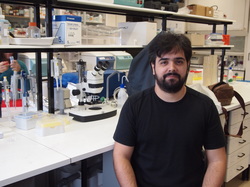
I have a degree in Biosciences/Microbiology from Escola Superior de Biotecnologia-UCP. Currently, I am finishing my Master's Degree in Microbiology at the same institution. In this context, I am part of the Plantech group and have been participating in a project that is being led by Prof. Marta Vasconcelos from Escola Superior de Biotecnologia-UCP, which mainly consists of performing studies on the dynamics of the pinewood nematode, in order to determine the existing correlation between the mycorrhizae and the hindrance of the pine wilt disease caused by the pinewood nematode Bursaphelenchus xylophilus on pine trees.
Sophie Heidig (BsC student)

I am currently finishing my first degree in Molecular Biotechnology at Technische Universität Dresden. I joined the PlanTech research group to absolve my curricular internship and also write my Bachelors Thesis. During my studies I developed a strong interest in the molecular biology of plants and already got in contact with basic plant diagnostic techniques. I hope to deepen my practical knowlege during my time at UCP and contribute to Mr. Oliveiras project on Flavascence Dorée.

Teresa Deuchande (Research fellow)
I graduated in Microbiology (BSc) from Escola Superior de Biotecnologia-UCP and did one-year training in clinical microbiology at Faculty of Medicine of University of Porto studying the promoting effect of an intravenous anesthetic (propofol) on the growth and development of Candida spp., which is responsible for many post-surgical infections. I also graduated in Food Engineering (BSc) at the same institution and did an internship program at Nestlé Research Center (Lausanne, Switzerland), where I worked with NMR spectroscopy applied to bubbling chocolate. In 2009, I concluded my Master degree in Food Engineering focusing on the functional foods area. In early 2011, I started my PhD on the study of internal browning disorders during long term storage of ‘Rocha’ pear at the CBQF - ESB-UCP, in partnership with IRTA (Lleida, Spain), and in February of 2013 I joined the Plantech group. The aim of my PhD is to elucidate physiological and biochemical mechanisms underlying the internal browning disorders in ‘Rocha’ pear with emphasis on the role of the antioxidant defense system and fermentative metabolism, providing the scientific basis for the development of recommendations to mitigate browning incidence in ‘Rocha’ pear. Currently my research interests are to better understand the biochemical mechanisms involved in the development of disorders in fruits as well as the influence of preharvest factors; and the development and optimization of post-harvest technologies, capable of extending fruit’s storability preserving their quality and preventing the incidence of disorders.
I graduated in Microbiology (BSc) from Escola Superior de Biotecnologia-UCP and did one-year training in clinical microbiology at Faculty of Medicine of University of Porto studying the promoting effect of an intravenous anesthetic (propofol) on the growth and development of Candida spp., which is responsible for many post-surgical infections. I also graduated in Food Engineering (BSc) at the same institution and did an internship program at Nestlé Research Center (Lausanne, Switzerland), where I worked with NMR spectroscopy applied to bubbling chocolate. In 2009, I concluded my Master degree in Food Engineering focusing on the functional foods area. In early 2011, I started my PhD on the study of internal browning disorders during long term storage of ‘Rocha’ pear at the CBQF - ESB-UCP, in partnership with IRTA (Lleida, Spain), and in February of 2013 I joined the Plantech group. The aim of my PhD is to elucidate physiological and biochemical mechanisms underlying the internal browning disorders in ‘Rocha’ pear with emphasis on the role of the antioxidant defense system and fermentative metabolism, providing the scientific basis for the development of recommendations to mitigate browning incidence in ‘Rocha’ pear. Currently my research interests are to better understand the biochemical mechanisms involved in the development of disorders in fruits as well as the influence of preharvest factors; and the development and optimization of post-harvest technologies, capable of extending fruit’s storability preserving their quality and preventing the incidence of disorders.
Sebastián Cisnéros (PhD student, Erasmus Mundos Program)

I graduated from Univerdad Nacional de La Plata in 2011, in Biotechnology and Molecular Biology studying, in my graduate thesis, the identification of peptide inhibitors of proteases with potential biomedical application obtained from Solanum tuberosum subsp andigenum variety Imilla Negra (Andean potato). I have been characterizing, purifying and identifying protease inhibitors (PIs) using different techniques as FPLC, HPLC, ion exchange chromatography, affinity chromatography with immobilized enzymes, immobilization of different proteases (trypsin, papain, CPA and araujiaín), SDS-PAGE, isoelectric focusing, native and denaturing electrophoresis, silver staining, tricine, determination of antibacterial and antifungal activity, development of methods to obtain and clarify plant extracts of enzymatic activity, measurement of specific inhibitory effect on the proteolytic activity, protein quantification, measurement of stability on different solvents of free enzymes and immobilized enzymes and PCR. It has been seen that these molecules have a remarkable anti-microbial and anti-carcinogenic action, with potential application in food and biomedical industry. Currently I´m a PhD student and I´m applying all the mentioned techniques to find natural food preservatives. It has been seen that PIs have a remarkable anti-microbial and anti-carcinogenic action, with potential application in food and biomedical industry.
Stefano Silvi (Visiting MsC student)
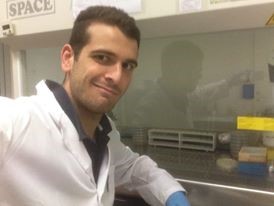
I have a degree in Agricultural sciences from Universitá degli studi della Tuscia in 2015 (Viterbo,Italiia). Currently I’m finishing my Master’s degree in Agricultural science and I’m conducting the thesis project on “Resistance of Pseudomonas syringae pv.actinidia to different concentration of cupric sulfate”, although I’m testing the use of essential oils in vitro to reduce or inhibit the growth of Psa in a collaborative project between Phydia and Plantech.
Mariana Roriz (PhD student)

I graduated in Biosciences (specialization in Microbiology) in 2008 and concluded a Master’s Degree in Microbiology in 2010, from Escola Superior de Biotecnologia – Universidade Católica Portuguesa.
I joined the PlanTech group in early 2009 and started to work in the plant pathology field, studying the population dynamics of the pinewood nematode and its associated bacteria, the subject of my master’s thesis. Since then, I focused my research on the plant nutrition area, studying the physiological, morphological and molecular responses of legumes to iron deficiency chlorosis.
In 2016, I started my PhD, which aimed at unveiling the mechanisms underlying iron uptake and accumulation in soybean by plant-growth promoting bacteria through morphological, physiological and molecular analysis.
My current research interests cover the microbiology, plant biology, and molecular biology areas, and the search for sustainable, eco-friendly, and innovative approaches for agriculture, food, and health improvement.
I joined the PlanTech group in early 2009 and started to work in the plant pathology field, studying the population dynamics of the pinewood nematode and its associated bacteria, the subject of my master’s thesis. Since then, I focused my research on the plant nutrition area, studying the physiological, morphological and molecular responses of legumes to iron deficiency chlorosis.
In 2016, I started my PhD, which aimed at unveiling the mechanisms underlying iron uptake and accumulation in soybean by plant-growth promoting bacteria through morphological, physiological and molecular analysis.
My current research interests cover the microbiology, plant biology, and molecular biology areas, and the search for sustainable, eco-friendly, and innovative approaches for agriculture, food, and health improvement.
Francisco Luis Machado e Costa - BSc student
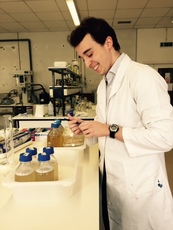
Bárbara Nascimento-BsC student
Ana Catarina Correia -BsC student
Francisca Mergulhão (MsC)
Dália Carvalho (PhD)
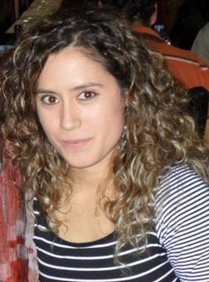
Sandra Castro (MsC)
Beatriz Simas da Rosa (MsC)
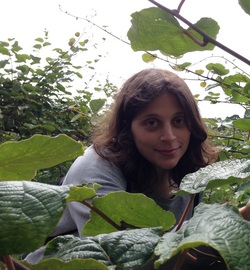
Tiago Rocha (MsC)
Mariana Fonseca (MsC)
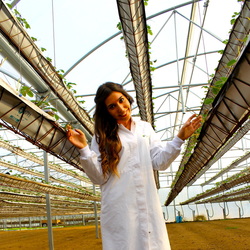
Gaspar Gomes (MsC)
Umbelina Neves (MsC)

Marta Lima (Post doc)
Inês Ramos (MsC)
Margarida Pereira (MsC)
Ana Silva (Anita) (MsC)

Philippe Chatelain (research assistant)
